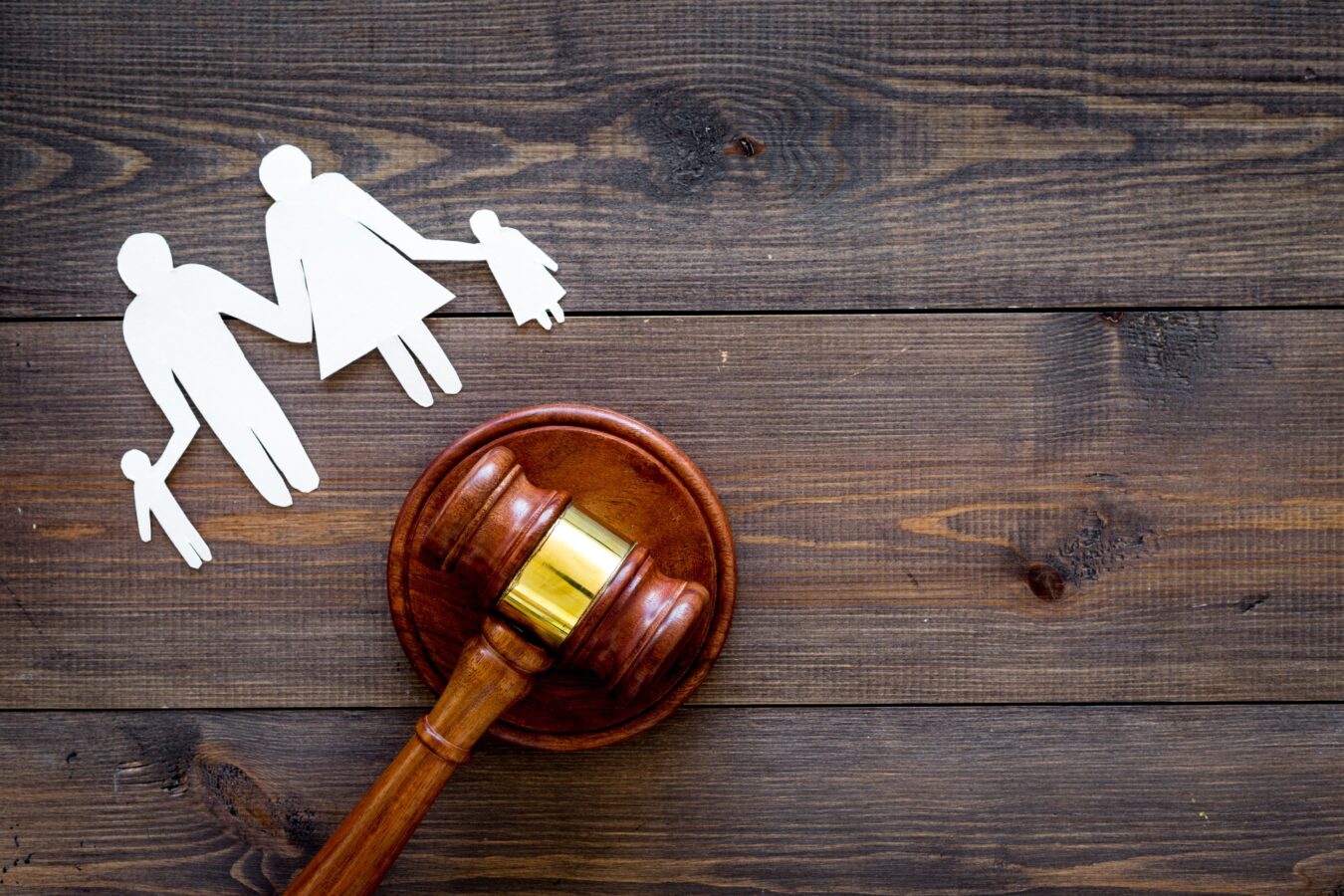What is a Merits Hearing in Family Court?
A merits hearing, also known as a final hearing or trial, is an important part of the court process in family law cases such as divorce, child custody, child support, and alimony. This hearing allows the judge to evaluate the evidence and make final decisions about these critical issues.
An Overview of the Family Court Process
To understand what a merits hearing entails, it helps to first understand the stages of a typical family law case. The process generally includes:
- Filing the Petition – The person requesting the court’s intervention files legal papers, called the petition or complaint, to start the case. This lays out what they are asking the court to do.
- Temporary Hearings – Either party can request temporary orders to establish arrangements like child custody and support while the case proceeds. This is sometimes done through affidavits rather than live testimony.
- Discovery – The parties exchange relevant information through tools like interrogatories, document requests, depositions, and subpoenas.
- Settlement Negotiations – Many cases settle before trial. The parties may negotiate directly or through attorneys, mediators, or other facilitators.
- Pre-trial Motions – There may be disputes over legal or procedural issues that must be addressed before trial. These often relate to what evidence can be introduced.
- Merits Hearing/Trial – This is the final evidentiary hearing where parties present evidence and testimony to the judge, who makes final rulings.
The merits hearing or trial is the culmination of the family court process. This is when the parties have the opportunity to present their full case to the judge for a final binding decision.
Purpose of a Merits Hearing
A merits hearing has several key purposes:
- Allow both parties to present admissible evidence related to the issues, such as documents, photos, videos, and witness testimony.
- Enable the judge to assess the credibility and truthfulness of each party’s claims through the evidence and testimony.
- Provide an opportunity for witnesses such as experts to explain their evaluations and opinions to the judge.
- Create a record of the evidence and arguments in case of an appeal.
- Give the judge the information needed to make informed rulings on all outstanding issues between the parties.
The overarching goal is for the judge to hear all relevant evidence in order to make final decisions that are fair, comply with the law, and serve the best interests of any children involved.
When a Merits Hearing Happens
Merits hearings generally take place after the parties have completed discovery and pre-trial motions practice. In some jurisdictions, a deadline for completing discovery is set at an initial status hearing.
Most cases settle before reaching a final merits hearing, which saves time and money for the courts and parties. Judges often encourage settlement through:
- Status conferences – The judge meets with the parties to discuss readiness for trial and explore settlement options.
- Settlement conferences – The parties and attorneys meet with a judge or special magistrate to negotiate a resolution.
- Mediation – A neutral third-party mediator helps the parties communicate and reach consensus.
However, if agreements can’t be reached, the case proceeds to the final merits hearing. There is usually a deadline for concluding discovery and filing pre-trial motions in advance of the hearing date.
The judge sets aside sufficient court time for the merits hearing based on the complexity of the case and number of issues to be tried. Simpler hearings may only take a few hours, while trials resolving multiple complex issues can run for several days.
How to Prepare for a Merits Hearing
Thorough preparation is critical for a successful merits hearing. Here are some key steps:
- Review evidence and organize exhibits – Gather originals and copies of all documents, photos, videos, receipts, reports, and records you want the judge to see. Organize exhibits logically and label them clearly.
- Interview and prepare witnesses – Talk to witnesses who will testify, such as professionals who evaluated the children or prepared financial reports. Prepare them for court proceedings and possible cross-examination.
- Create a trial notebook – Compile all relevant documents, exhibits, notes, research, and outlines in an organized trial binder for easy access.
- Rehearse direct exam questions – Practice the questions you will ask your witnesses to elicit the necessary information from their testimony.
- Anticipate cross-examination – Predict the questions the other party may ask on cross-examination and prepare appropriate responses.
- Review rules of evidence – Understand the rules regarding what evidence is admissible in court and how to properly admit exhibits and testimony.
- Prepare opening and closing statements – Outline strong opening remarks summarizing your key points and closing arguments tying the evidence to applicable law.
- Know court decorum – Learn the etiquette for speaking to the judge, examining witnesses, and conducting yourself appropriately throughout the proceedings.
- Take care of logistics – Make childcare arrangements for children too young to testify. Prepare proper attire for court. Confirm transportation, parking, and timing.
Thorough preparation allows you to present your case effectively and efficiently in the limited time allotted at the hearing.
What Happens at a Merits Hearing
Though procedures vary by jurisdiction, merits hearings generally follow the same basic format:
Opening Statements
- Each party or their lawyer presents a brief overview of the issues in dispute, the relevant facts, and the ruling they want the judge to make.
Presentation of Evidence
- The petitioner/plaintiff presents their evidence and calls witnesses first. The respondent/defendant goes second.
- Evidence can be documents, photos, videos, financial records, and witness testimony.
- Witnesses are examined through direct examination by the calling party, then cross-examined by the opposing party. Witnesses may be recalled later to clarify testimony.
- Experts such as financial analysts or custody evaluators often testify about their recommendations.
- The judge determines whether evidence is admissible and what weight to give it. Objections may be raised during testimony.
Closing Arguments
- The parties summarize the key evidence that supports their position and argue how it applies to the law.
- The petitioner/plaintiff presents their closing argument first, followed by the respondent/defendant.
- The judge may ask additional questions of either party before closing the hearing.
Issuing a Ruling
- For simple cases, the judge may issue a ruling verbally at the hearing.
- For complex or contentious cases, the judge takes the matter under advisement and issues a written order later, often within 30-90 days.
- If the judge needs additional information to make a decision, they may order a continuance and schedule another court date.
Throughout the merits hearing, the rules of evidence and trial procedure apply. Formal court decorum is maintained, and the parties must adhere to the judge’s directives. Witnesses testify under oath and are subject to penalties for perjury.
Common Issues Addressed at a Merits Hearing
Though every case is unique, merits hearings frequently resolve issues like:
- Child Custody – What custody arrangement (sole legal/physical or joint legal/physical custody) serves the child’s best interests? What is each parent’s parenting schedule?
- Visitation Rights – What is the visitation schedule for the non-custodial parent? What conditions, if any, are needed to ensure the child’s safety during visits?
- Child Support – How much must the non-custodial parent pay in monthly child support? What expenses will each parent cover? How long will support continue?
- Spousal Support/Alimony – Is one spouse entitled to financial support from the other? If so, how much for how long? What factors determine appropriate support?
- Division of Marital Property – How should assets like real estate, financial accounts, businesses, pensions, personal property, and debts be equitably divided?
- Attorney’s Fees – Should one party reimburse the other for attorney’s fees based on need or unreasonable conduct? How much is reasonable?
- Family Violence Orders – Is a restraining order warranted to protect the safety of a spouse or children? What conduct should it prohibit? How long should it remain in effect?
- Contempt Motions – Did one party willfully violate valid court orders, and should they be held in contempt? What sanctions or make-up orders are appropriate?
The merits hearing is the parties’ opportunity to present full evidence on these contested issues so the judge can make informed final decisions.
Key Roles at the Merits Hearing
In addition to the parties themselves, other key participants play important roles:
The Judge
- Presides over the hearing and enforces rules of evidence and procedure
- Listens to testimony, examines evidence, and assesses credibility
- Makes rulings on objections and arguments
- Determines what evidence to admit and what weight to give it
- Issues final orders resolving the disputed issues between the parties
Attorneys
- Provide counsel to parties they represent
- Conduct direct examination of their own witnesses
- Cross-examine opposing witnesses
- Make objections and arguments
- Offer opening and closing statements
- Adhere to ethical obligations as officers of the court
Witnesses
- Take the witness stand and testify under oath
- Respond to attorney questioning on direct and cross-examination
- Provide truthful testimony based on their knowledge of the case
- May include parties themselves, experts, eyewitnesses, or individuals with factual evidence
Court Reporter
- Produces the official transcript of everything said during the hearing
- Swears in witnesses and records their testimony
- Marks exhibits as they are admitted into evidence
Tips for Presenting Your Case at a Merits Hearing
To have the best chance of prevailing at a merits hearing, keep these tips in mind:
- Dress professionally – Proper courtroom attire helps convey respect for the judge and proceedings.
- Be respectful – Always use respectful language and tone toward the judge, court staff, witnesses, and your ex-partner. Never interrupt.
- Focus on facts – Provide clear facts that support your claims. Avoid exaggeration or speculation.
- Call credible witnesses – Seek honest witnesses without obvious bias who can bolster your credibility.
- Prepare exhibits thoroughly – Make multiple copies of each exhibit. Follow proper procedures for foundation and admission into evidence.
- Stay calm under cross-examination – Listen carefully to each question and answer only what is asked. Avoid unnecessary elaboration.
- Take notes – Document key testimony and evidence from the other party that you may wish to address later.
- Be brief – Judges appreciate parties who make their points succinctly without redundant or irrelevant information.
- Tell the truth – False or misleading testimony under oath can constitute perjury. Answer all questions transparently.
Following these tips helps instill confidence in the judge that you are an honest, rational person deserving of a favorable ruling.
Conclusion
A merits hearing is a pivotal moment in family law cases. It represents the parties’ opportunity to have disputed issues regarding children, property, support, and more finally resolved by a judge after full presentation of evidence.
Thorough preparation and thoughtful presentation of your case at the hearing are critical. Understanding the procedures, participants’ roles, and best practices allows you to navigate the process smoothly. Though emotional and stressful, the merits hearing brings you one step closer to final resolution and closure.
FAQs
How long do merits hearings usually last?
Merits hearings can range from a few hours for simple cases to several days for complex ones. The judge usually estimates the needed hearing length based on the number of issues and witnesses involved.
Can I fire my attorney right before the merits hearing?
You can discharge your attorney at any time, but it is inadvisable right before trial. Judges typically will not delay a hearing just because an attorney is fired. You would likely have to represent yourself on short notice.
What happens if new evidence arises after the merits hearing?
If significant new evidence surfaces that could impact the judge’s ruling, you can file a motion to reopen the hearing or set aside the order. But this requires showing good cause, so new evidence should be raised ASAP.
Can I speak directly to the judge outside the courtroom about my case?
No, this is called ex parte communication and is strictly prohibited. All case communications must happen officially during hearings or through attorneys/court staff.
How long does the judge usually take to issue a ruling after the merits hearing?
It varies by jurisdiction, but often 30-90 days. Complex cases with lots of evidence can take longer. A ruling may happen faster if children are directly impacted by ongoing interim arrangements.






